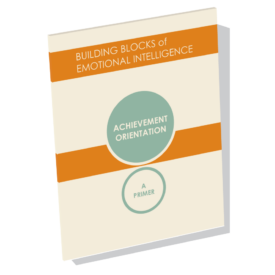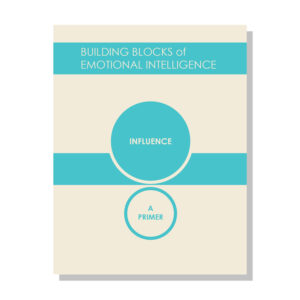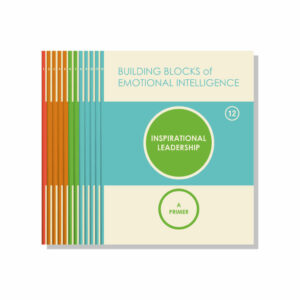

Achievement Orientation: Coaching Strategies for Insightful Leadership
April 17, 2017 Time to read: 4 min.
It is true that leaders who struggle to maintain a productive achievement orientation often have technical growth areas related to setting goals, progress monitoring, and analyzing data. However, there is often a deeper adaptive issue at play that limits the impact of technical skill building when not addressed.
Whether they know it or not, many leaders care less about achievement than they do about other core personal values. The good news is that leaders can learn to balance these seemingly competing values in their work.
David McClelland’s “Learned Needs Theory” from The Achieving Society (1961) has helped me and the leaders I coach make sense of this phenomenon. According to McClelland, there are three core human motives:
- Affiliation – valuing collaboration, relationship, and belonging to a group.
- Power – valuing competition, recognition, and influencing others.
- Achievement – valuing setting and accomplishing goals, and receiving feedback on progress.
McClelland believes that everyone values all three motives, but our life experiences and environments make one of them our dominant motive. Leaders who struggle to care enough about achievement are driven by another motive in a way that competes with achievement. As a coach, it is my job to raise self-awareness about competing motives, push leaders to challenge assumptions about achievement that are getting in their way, and support them in crafting a new values-driven narrative that gets achievement and their other core motive working in harmony.
In my experience, leaders are most likely to struggle to reconcile achievement motive with their affiliative motive.
Paul is a leader I coached who fits this bill. Paul led a small company with moderate results and was loved by his employees and clients. Still, Paul felt like there was a next level for him as a leader, and so jumped at the opportunity to leave his comfortable position to grow at another high-achieving company. Within weeks of his arrival, however, Paul’s enthusiasm began to falter. He struggled to implement the company’s coaching system, with its focus on tight, accountable data cycles and direct performance feedback. When I met Paul, his manager shared that Paul’s feedback often “hid the ball”, and that he was allowing his people to settle for lackluster achievement goals. Meanwhile, Paul confided in me that his new work felt cold and impersonal. He was worried that his team was becoming discouraged by the impossibly high expectations and constant constructive feedback.
The more stories Paul told me about his performance management practice, the more I suspected that his root issue was competing beliefs. I realized that Paul’s ability to grow depended first on building his awareness about his own values conflict.
To help Paul I began unpacking his meetings with his direct reports that felt off. I asked these questions:
At what point in the meeting did you feel dissonance? What did your person say or do that triggered that?
How did you feel when this happened? Name an actual emotion. Where do you think this is coming from?
What thoughts were going through your head that impacted your use of the coaching system?
What values or beliefs are under attack for you in this situation? In other words, what do you deeply believe about the right way to develop people that is being violated here?
When Paul is able to name a deep belief that feels somehow compromised, I share McClelland’s core motive theory with him and ask him, “Based on the conversation we just had, what do you think is most likely your core motive?” His answer: affiliation. At this point, the heavy lifting begins. I ask Paul:
How do you think this core motive is serving you right now, and how do you think it might be getting in your way?
I follow this question with others that encourage Paul to consider the impact of his actions on his direct reports, on outcomes, and ultimately the impact on himself. My goal is not to disparage Paul’s affiliation motive (certainly one of his core strengths as a leader), but rather to help him see when it shows up in ways that are holding him back as a leader.
When Paul starts to dig in about people’s feelings, I ask him to consider how his actions now are impacting the feelings of his people. At some point Paul realizes that the way he currently values affiliation through relationships and nurturing emotional harmony not only impacts outcomes, but actually strains relationships and causes negative emotions. He sees that when he lets people off the hook for achieving goals and sugarcoats performance feedback, he is inadvertently sending the message that he doesn’t believe they are capable of achieving and growing.
Paul is now both confused and ready to re-balance his beliefs about affiliation and achievement. I help him craft a new values-driven narrative that creates a new leadership path by asking the following questions:
- What do you deeply believe are all of the conditions people need to learn and grow? Sort them by motive. You believe all of these things, even if they currently seem at odds.
- How will you know when some of these conditions are actually getting in the way of growth? What could you do as a leader when this happens?
- How will you make yourself lean into the conditions you know some people need, even when they fall into the achievement motive and push up against your affiliative motive?
Paul develops a plan to be aware of when his affiliation motive gets in his way, and to manage his unproductive impulses. The plan helps him make better decisions about development strategies, because he is now trying to figure out what his reports need to grow rather than what makes them feel good. With practice and coaching, Paul learns to care about achievement by replacing old assumptions and habits with new ones that balance care for people and performance.
Recommended Reading:
Our new primer series is written by Daniel Goleman and fellow thought leaders in the field of Emotional Intelligence and research. The following are available now: Emotional Self-Awareness, Emotional Self-Control, Adaptability, and Achievement Orientation, with new releases monthly throughout 2017.
For more in-depth insights, see the Crucial Competence video series!








